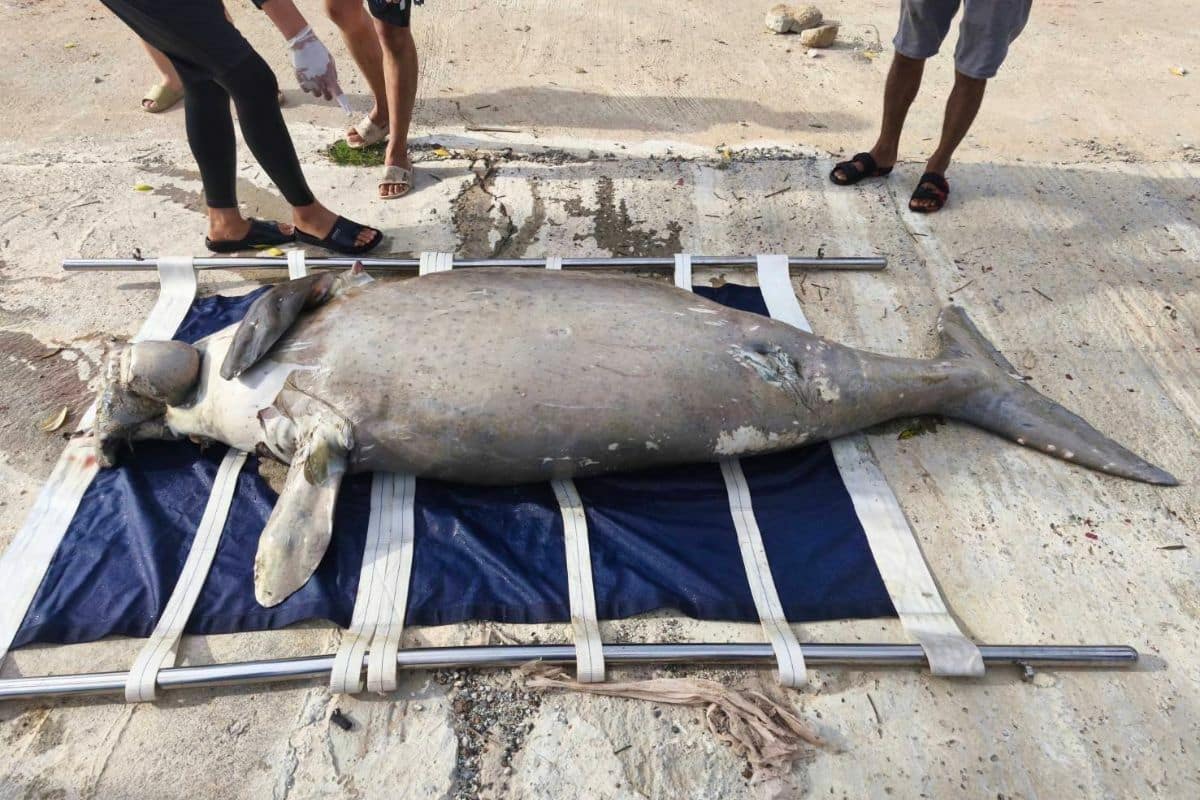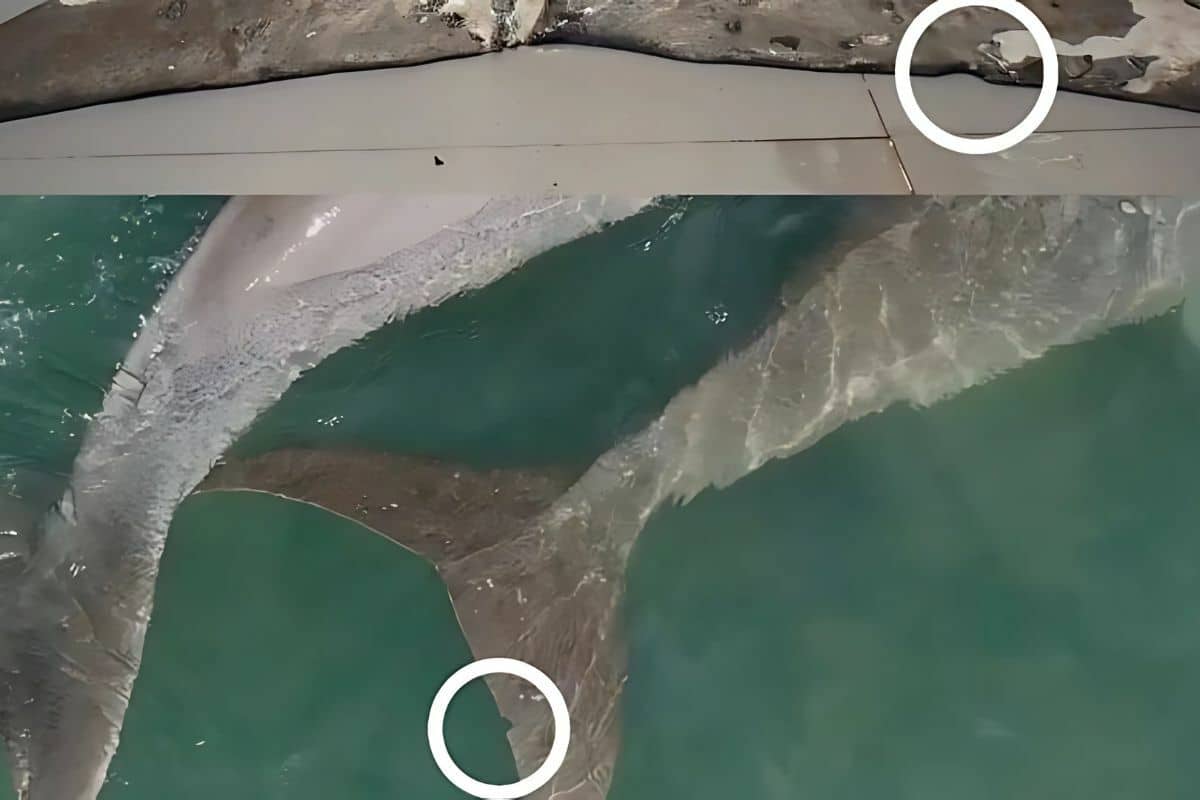Decomposed dugong found in Phuket likely died of natural causes

Marine officials reported that a dugong found ashore at Ban Ko En in Mai Khao, Phuket likely succumbed to natural causes linked to a chronic illness. The exact cause remains uncertain due to the advanced decomposition of the carcass.
The female dugong, measuring 251 centimetres and weighing around 130 kilogrammes, was discovered on April 8, as confirmed by the Andaman Sea Marine and Coastal Resources Research Centre, part of the Department of Marine and Coastal Resources (DMCR).
An initial examination revealed the adult dugong was severely decomposed and underweight, with a body condition score of two out of five.
Barnacles were attached to its body, accompanied by marks likely from interactions with other dugongs. Notably, five deep wounds were observed reaching the fat layer on the side of its body.

Marine researchers noticed skin blemishes on the dugong that matched those of a previously sighted dugong in Ao Tangkhen, which had appeared unusually thin since January. This led to suspicions of a prolonged illness.
The dugong’s muscles were found to be atrophied and decaying. Its digestive tract was filled with seagrass, roundworms were present, along with a piece of plastic and two tendons in the intestines, though these were not believed to be the cause of death. An abnormal thickening of the uterine wall was also noted.
Due to the extensive decomposition of most internal organs, no definitive signs of disease could be confirmed. Officials suggest that natural illness was likely the cause of death, but laboratory testing of collected tissue samples is ongoing for further analysis, reported The Phuket News.
Dugongs are classified as vulnerable marine animals in Thailand and are protected under national conservation laws.
Nearly 40% of dugongs stranded last year were underweight due to a critical lack of seagrass, according to the DMCR.
A joint survey by the DMCR and WWF Thailand in January revealed the alarming degradation of seagrass meadows along the Andaman coast, especially in Trang, Krabi, and Phuket. The decline in seagrass has forced many dugongs to abandon traditional feeding areas, resulting in a surge in strandings.
Latest Thailand News
Follow The Thaiger on Google News:


























